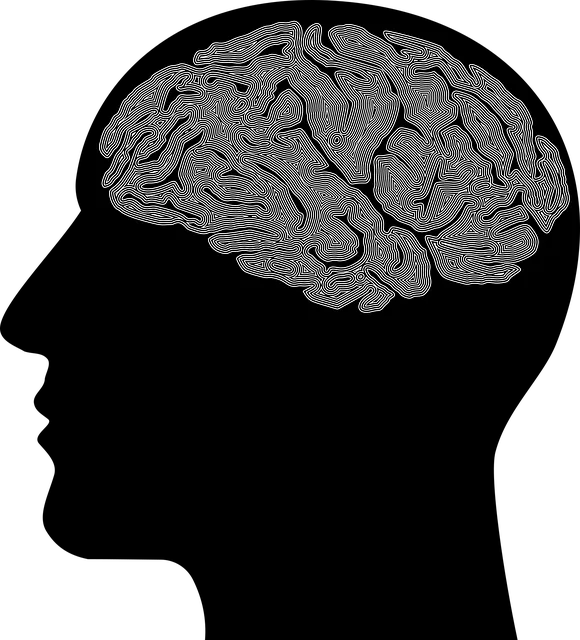Boulder Kaiser Permanente behavioral health services offer comprehensive trauma support, addressing emotional responses to distressing events that can lead to long-term mental and physical issues. Their holistic approach combines evidence-based techniques like Mindfulness Meditation and CBT with innovative resources, fostering self-awareness through Mental Wellness Journaling Exercises. Structured interviews, stigma reduction efforts, and diverse, culturally sensitive practices ensure personalized care tailored to each patient's unique experience. With expanded telehealth options, these services aim to empower individuals to manage trauma, improving mental wellness in a supportive environment that caters to underserved populations.
“Trauma, an often-overlooked aspect of mental health, can leave profound and lasting effects on individuals. This comprehensive article delves into the critical role of support services in aiding recovery from traumatic experiences. We explore the far-reaching impact of trauma and how organizations like Boulder Kaiser Permanente Behavioral Health Services are at the forefront of providing specialized care. By understanding trauma’s nuances, assessing patients’ unique needs, and employing effective interventions, these services empower individuals on their path to healing.”
- Understanding Trauma and Its Impact: A Comprehensive Overview
- The Role of Boulder Kaiser Permanente Behavioral Health Services in Trauma Support
- Identifying and Assessing Trauma in Patients: Tools and Techniques
- Effective Interventions for Trauma Recovery: Therapeutic Approaches
- Enhancing Access and Availability: Expanding Trauma Support Services
Understanding Trauma and Its Impact: A Comprehensive Overview

Understanding trauma is paramount when discussing trauma support services provision. Trauma, a profound emotional response to distressing events, can have lasting effects on mental and physical health. It often manifests as anxiety, depression, flashbacks, or dissociation, impacting daily functioning and overall well-being. The impact of trauma varies greatly among individuals, with some experiencing acute symptoms following a single event while others develop complex post-traumatic stress disorder (PTSD) after repeated exposure to traumatic situations.
Boulder Kaiser Permanente behavioral health services, for instance, play a crucial role in offering trauma support services. These services aim to help individuals process their experiences, manage symptoms, and rebuild their lives. Techniques such as Mindfulness Meditation are increasingly incorporated into treatment plans, fostering resilience and promoting emotional regulation. Moreover, Mental Illness Stigma Reduction Efforts are integral to creating supportive environments where those affected by trauma feel understood and encouraged to seek help without fear of judgment.
The Role of Boulder Kaiser Permanente Behavioral Health Services in Trauma Support

Boulder Kaiser Permanente Behavioral Health Services plays a pivotal role in providing comprehensive trauma support. Their dedicated team offers specialized care designed to help individuals navigate the complexities of traumatic experiences, fostering healing and growth. By employing evidence-based practices and innovative approaches, such as Empathy Building Strategies and Resilience Building techniques, they create safe spaces for expression and recovery.
In addition to individual therapy sessions, Boulder Kaiser Permanente provides valuable resources like Mental Wellness Journaling Exercise Guidance. This guidance empowers clients to explore their emotions, track progress, and cultivate self-awareness – essential components in the journey towards mental wellness. Through these supportive services, individuals are equipped with tools not only to cope with trauma but also to thrive.
Identifying and Assessing Trauma in Patients: Tools and Techniques

Identifying and assessing trauma in patients is a critical step in providing effective support at Boulder Kaiser Permanente behavioral health services. Professionals utilize a range of tools and techniques to uncover hidden wounds, ensuring personalized care for each individual’s unique experience. One widely recognized method involves structured interviews that encourage open dialogue, allowing patients to share their stories freely. These conversations can reveal patterns indicative of traumatic events, such as abuse, neglect, or accidents.
Additionally, clinical assessment scales play a vital role in quantifying the impact of trauma on mental health. These scales provide standardized measures, facilitating accurate diagnoses and tailoring interventions accordingly. Incorporating Mental Illness Stigma Reduction Efforts throughout this process is essential, fostering an environment where patients feel safe to express their experiences without fear of judgment. Mind Over Matter principles encourage self-reflection, as journaling exercises can offer valuable insights into emotional responses, helping individuals gain a deeper understanding of their trauma’s influence on their mental wellness.
Effective Interventions for Trauma Recovery: Therapeutic Approaches

Effective interventions for trauma recovery play a pivotal role in supporting individuals who have experienced adverse events. Boulder Kaiser Permanente behavioral health services employ a range of therapeutic approaches tailored to meet diverse needs. One such approach is Cognitive Behavioral Therapy (CBT), which helps individuals identify and modify negative thought patterns and behaviors resulting from traumatic experiences. Eye Movement Desensitization and Reprocessing (EMDR) therapy is another evidence-based method, utilizing bilateral stimulation techniques to facilitate the brain’s natural healing process and reduce trauma-related symptoms.
Beyond these, culturally sensitive practices have gained prominence in mental healthcare. By incorporating elements of Cultural Sensitivity in Mental Healthcare Practice, therapists create safe spaces that honor clients’ backgrounds and beliefs. This personalized approach enhances trust and engagement, ultimately improving treatment outcomes. Additionally, Community Outreach Program Implementation initiatives extend support to underserved populations, ensuring accessible trauma recovery resources for all. Risk Management Planning for Mental Health Professionals is also crucial, providing guidelines to navigate complex situations safely and ethically.
Enhancing Access and Availability: Expanding Trauma Support Services

In today’s digital era, access to trauma support services is more crucial than ever. Boulder Kaiser Permanente behavioral health services have recognized this need and are working to expand their offerings, ensuring that a broader range of individuals can receive the care they deserve. One significant approach involves leveraging technology to increase availability. Telehealth options, for instance, allow those in remote areas or with limited mobility to access specialized trauma therapists from the comfort of their homes, thereby eliminating barriers related to physical accessibility.
This enhanced accessibility is underpinned by Mind Over Matter Principles, which focus on empowering individuals to manage and overcome trauma through cognitive and emotional regulation strategies. By integrating these principles into trauma support services, Kaiser Permanente aims to foster Self-Esteem Improvement and facilitate holistic healing processes. This inclusive initiative underscores the organization’s commitment to creating a supportive environment where everyone has the opportunity to navigate and recover from traumatic experiences effectively.
In light of the profound impact of trauma and its far-reaching effects on individuals and communities, enhancing access to quality trauma support services is more crucial than ever. Boulder Kaiser Permanente Behavioral Health Services has played a pivotal role in this domain, providing comprehensive care that addresses the unique needs of those affected by trauma. By leveraging effective interventions and expanding availability, they foster healing and recovery. Moving forward, continued efforts to identify and assess trauma in patients, coupled with innovative therapeutic approaches, will ensure that support services remain accessible and tailored to meet the diverse needs of individuals seeking help.






